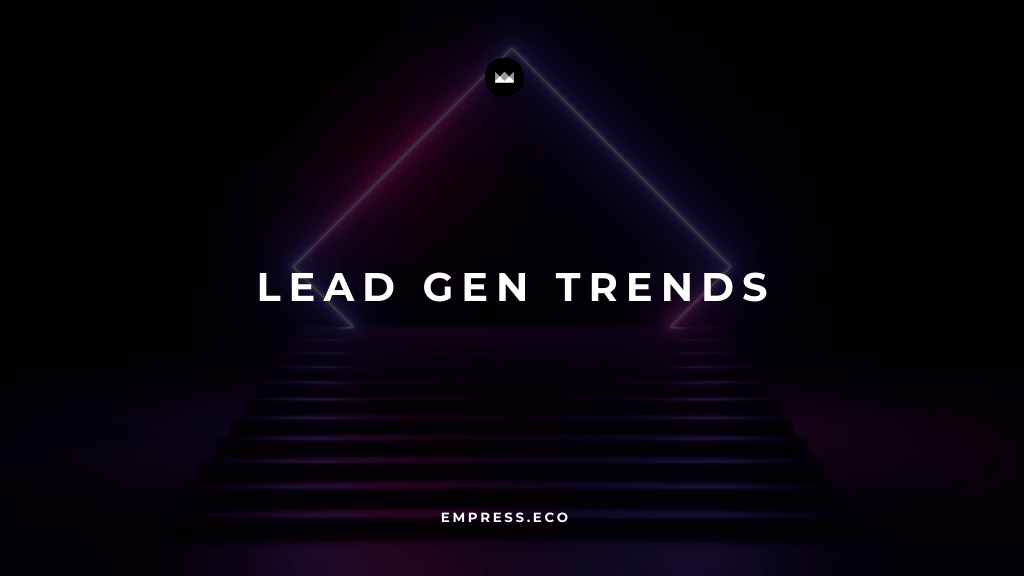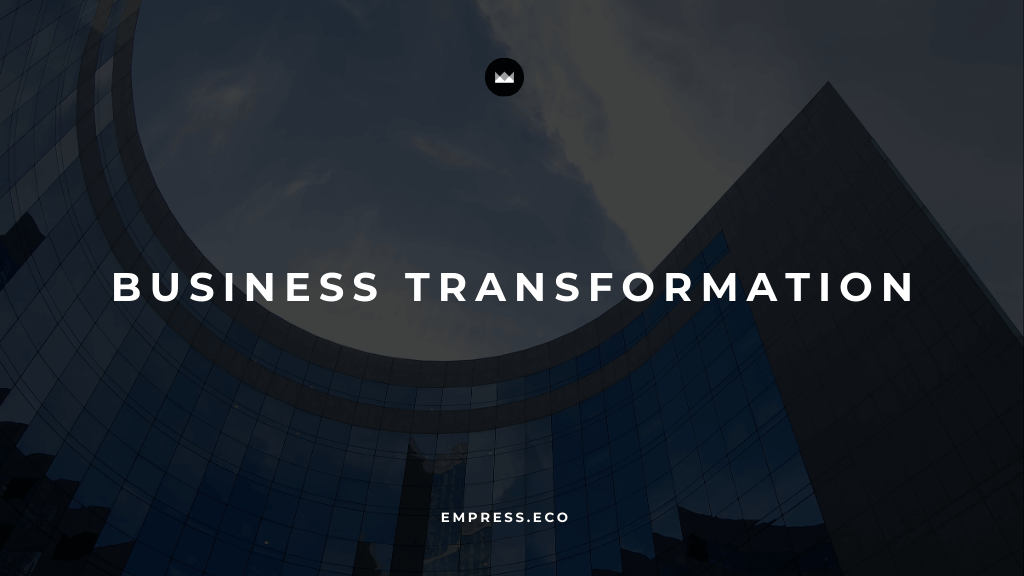
Explore the Future of Lead Generation and Stay Ahead of Emerging Trends with IRIS
Exploring Emerging Technologies and Strategies Shaping the Industry
Table of Contents
As we journey through 2024, it's fascinating to observe how the methods and technologies for lead generation are evolving. Businesses are continually seeking innovative ways to attract and convert potential customers, and several emerging trends are set to shape the future of lead generation. Let's dive into these key trends and explore how they can enhance your lead generation efforts.
Personalization Through Buyer Intent Data
One of the most significant trends in lead generation is the use of buyer intent data to personalize outreach efforts. Imagine knowing exactly where your prospects are in their buying journey. This level of insight allows you to tailor your communication to meet their specific needs and interests.
Buyer intent data is collected from various touchpoints, such as website visits, content downloads, and social media interactions. By analyzing this data, businesses can identify prospects who are showing genuine interest in their products or services. This enables marketers to focus their efforts on the most engaged prospects, increasing the chances of conversion.
For example, if a prospect has visited your pricing page multiple times, it indicates a high level of interest. You can then tailor your follow-up emails to address any potential concerns they might have and provide additional information that could help them make a decision. This targeted approach not only increases the likelihood of conversion but also enhances the overall customer experience.
Video Marketing: Engaging and Informative Content
Video marketing continues to be a powerful tool for lead generation. With the average viewer spending 17 hours a week watching online videos, businesses that create engaging and informative video content can significantly boost their lead generation efforts.
Short-form, vertical videos optimized for mobile viewing are particularly effective in capturing the attention of today’s audience. These videos are easily consumable and can quickly convey your message. Live streaming is another powerful format that allows businesses to engage with their audience in real-time, answer questions, and provide valuable insights.
Authenticity is key when it comes to video content. Unscripted, behind-the-scenes videos that showcase your team and company culture can build trust and humanize your brand. Product demos, customer testimonials, and educational content are also great ways to leverage video for lead generation. By providing valuable and engaging content, you can attract and convert more leads.
AI and Automation: Revolutionizing Lead Generation
AI and automation are transforming the landscape of lead generation. These technologies streamline processes, improve efficiency, and make the lead generation process feel more personalized.
AI-driven chatbots, for example, can qualify leads, answer questions, and provide resources 24/7. This immediate response capability ensures that potential leads are engaged even outside of regular business hours. Chatbots can handle initial inquiries, freeing up your sales team to focus on more complex interactions.
Automation tools can also handle repetitive tasks such as data entry, lead nurturing, and follow-up processes. This not only saves time but also ensures consistency and accuracy. Automated email campaigns can be personalized based on the prospect’s behavior, increasing the chances of engagement.
By integrating AI and automation into your lead generation strategy, you can provide a seamless and efficient experience for your prospects, ultimately driving higher conversion rates.
Account-Based Marketing (ABM): A Strategic Approach
Account-Based Marketing (ABM) is becoming a standard practice, especially in B2B marketing. This approach focuses on targeted accounts rather than individual leads, allowing businesses to create personalized campaigns that resonate more deeply with potential customers.
ABM aligns sales and marketing teams to identify and target high-value accounts. Personalized campaigns are then developed to address the specific needs and pain points of these accounts. This strategic approach ensures that your marketing efforts are more relevant and effective.
For instance, if you’re targeting a large enterprise, your marketing materials can address their specific challenges and demonstrate how your solution can solve their problems. This level of personalization builds trust and credibility, making it easier to convert high-value accounts.
ABM also involves multi-channel engagement, ensuring that your message reaches the target account through various touchpoints such as email, social media, and direct mail. By focusing your efforts on the most valuable accounts, you can achieve higher ROI and drive more significant business growth.
Generative AI: Transforming Content Creation
Generative AI tools are revolutionizing content creation and personalization in lead generation. These tools can generate customized content, emails, and ads tailored to the specific needs and pain points of target accounts, improving engagement and conversion rates.
For example, AI can analyze a prospect’s behavior and preferences to create personalized email content that resonates with them. This could include addressing their specific pain points, highlighting relevant case studies, and offering tailored solutions. Generative AI can also create dynamic web content that adapts to the visitor’s interests, providing a personalized browsing experience.
By leveraging generative AI, businesses can scale their content creation efforts while maintaining a high level of personalization. This not only enhances the effectiveness of lead generation campaigns but also improves the overall customer experience.
Cookieless Tracking and First-Party Data: Adapting to Privacy Regulations
With the decline of third-party cookies, businesses are shifting towards collecting and utilizing first-party data. This includes data gathered through website forms, surveys, and live chats. Privacy-compliant tracking methods, such as encrypted email addresses and consent management platforms, are essential for maintaining user trust and complying with regulations like GDPR and CCPA.
First-party data is valuable because it is directly collected from your audience, providing accurate and relevant insights. By using this data, businesses can create personalized marketing campaigns that resonate with their audience.
For instance, if a visitor fills out a form on your website, you can use the information they provide to tailor your follow-up communications. This could include sending personalized emails with content relevant to their interests or offering exclusive deals based on their preferences.
By focusing on first-party data and privacy-compliant tracking methods, businesses can build trust with their audience and create more effective lead generation strategies.
Enhanced Email Marketing: Building Trust and Delivering Value
Email marketing remains a vital tool for lead generation. In 2024, the focus is on delivering valuable content that builds trust rather than just promoting deals. Techniques like using BIMI (Brand Indicators for Message Identification) and DMARC (Domain-based Message Authentication, Reporting & Conformance) for email authentication can enhance email marketing effectiveness by improving deliverability and protecting against phishing attacks.
To make your email marketing campaigns more effective, focus on providing high-quality content that addresses your audience’s needs and interests. This could include educational resources, industry insights, and exclusive offers. By delivering value through your emails, you can build trust and establish your brand as a credible source of information.
Offering high-quality downloadable resources, such as whitepapers, eBooks, and guides, can also enhance your email marketing efforts. These resources provide value to your audience and can help you capture more leads. Ensure that your emails are visually appealing, easy to read, and optimized for mobile devices to maximize engagement.
Social Media Engagement: Building an Active Community
Social media platforms are powerful tools for lead generation. Building an active community on these platforms can boost your credibility and attract more leads. Engaging directly with your audience and establishing your brand as an influencer can help you connect with potential customers on a personal level.
Authentic interactions are key to success on social media. Share behind-the-scenes content, engage in conversations, and respond to comments and messages promptly. Consistent content sharing is also important. Post regularly and share a mix of content types, including images, videos, and articles, to keep your audience engaged.
Hosting live events, such as webinars and Q&A sessions, can also help you connect with your audience and generate leads. These events provide an opportunity to showcase your expertise and address your audience’s questions and concerns in real-time.
SEO and Web Scraping: Enhancing Visibility and Expanding Your Customer Base
Search engine optimization (SEO) remains critical for visibility and lead generation. By optimizing your website for search engines, you can attract more organic traffic and generate more leads. Focus on creating high-quality content that addresses the needs and interests of your target audience. Use relevant keywords, optimize your meta tags, and ensure that your website is mobile-friendly to improve your search engine rankings.
Web scraping tools can also help businesses gather data on potential leads, expanding their customer base. These tools can extract valuable information from websites, such as contact details, social media profiles, and company information. By using this data, businesses can identify new prospects and create targeted marketing campaigns.
However, it’s important to use web scraping tools ethically and in compliance with data privacy regulations. Ensure that you have permission to collect and use the data, and respect the privacy of your prospects.
ROI Tracking and Analytics: Measuring Success and Making Data-Driven Decisions
Measuring the success of lead generation efforts is essential for optimizing your strategies and achieving the best possible returns. Tools like ROI calculators and advanced analytics platforms help businesses track the effectiveness of their campaigns and make data-driven decisions.
By analyzing metrics such as conversion rates, lead quality, and customer acquisition cost, you can identify which strategies are working and which need improvement. This allows you to allocate resources more effectively and optimize your lead generation efforts.
Advanced analytics platforms can also provide insights into your audience’s behavior and preferences, helping you create more targeted and personalized marketing campaigns. By leveraging these insights, you can enhance your lead generation strategies and drive sustained growth.
Conclusion: Embrace the Future of Lead Generation
The future of lead generation is bright, with numerous emerging technologies and strategies offering new ways to attract and convert leads. By staying ahead of these trends—such as personalization, video marketing, AI and automation, ABM, and privacy-compliant data practices—businesses can enhance their lead generation efforts and drive sustained growth in 2024 and beyond.
Embrace these trends and integrate them into your lead generation strategy to stay competitive and effectively engage with your target audience. By doing so, you can build stronger relationships with your prospects, improve your conversion rates, and achieve long-term success.
Empress Newsletter
Join the newsletter to receive the latest updates in your inbox.







